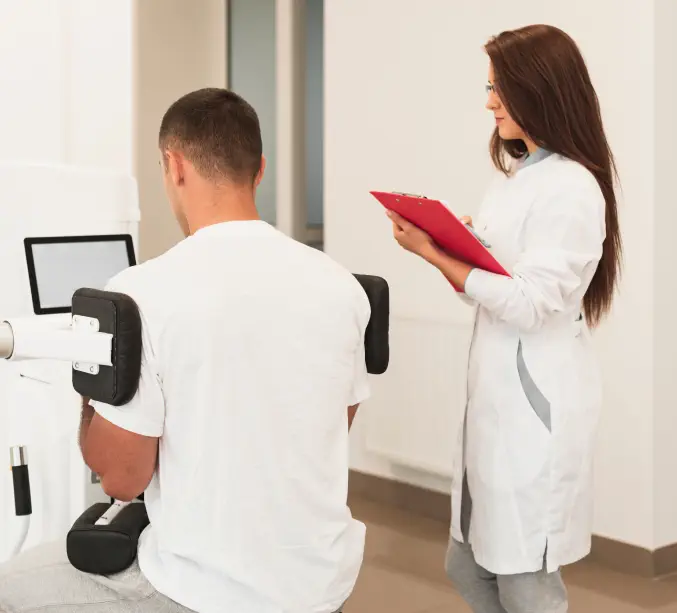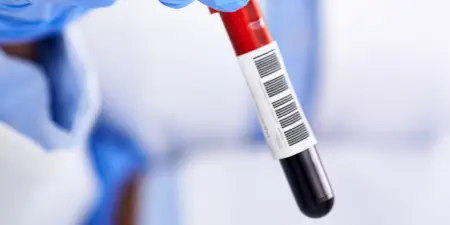Renal Cancer

Your Dedicated Ally to Conquer Kidney Cancer
Cancer of the kidney usually occurs in people over forty years. Why this disease occurs still remains an unsolved mystery. What is evident, however, is the fact that kidney cancer is not a contagious disease but a complicated one, requiring precise diagnosis, personalised treatment and managerial approaches.
Dr Aarthy P, an experienced urology doctor, brings a wealth of knowledge to the uro-oncology field and leverages her expertise to enable better management of early and complicated kidney cancer cases.
Her specialties also include kidney-preserving techniques such as Partial Nephrectomy and patient-centric treatment plans that align with their ailment and health condition.
Dr. Aarthy ensures that each patient receives the best treatment and the best possible support to improve their kidney health. Prioritise your kidney health and consult Dr. Aarthy today.
Renal Cancer
Causes & Symptoms
- The Causes
- The Symptoms
- Smoking is a significant risk factor that increases the likelihood of kidney cancer.
- Obesity can also contribute to the occurrence of abnormalities in the formation of kidney cells.
- Genetic predisposition and inherited conditions like Von Hippel-Lindau syndrome also increase the risk of kidney cancer.
- Long-term exposure to chemicals such as trichloroethylene at the workplace can lead to kidney cancer.
- Chronic kidney disease also contributes to an increase in cancer risk.
- Chronic hypertension can lead to long-term damage to kidney cells.
- Age-related risks are higher after 60 years.
- Hematuria, or the presence of blood in the urine, is the most common and painless warning sign.
- Non-injury related lower back pain restricted to one side of the body.
- Swollen mass or lumps in the kidney area.
- Constitutional symptoms such as unexplained fatigue and weight loss.
- Anaemia leading to unusual fatigue and body weakness.
- Persistent fever that lasts for more than several weeks and is not associated with any infection.
- Loss of appetite or a sensation of satiation very quickly.
A Deep Dive Into Comprehensive Kidney Cancer Diagnosis
Precise diagnosis of kidney cancer tumours is essential for drafting the right treatment plans. Dr. Aarthy adopts a methodical approach, harnessing the latest diagnostic tools and tests to accurately confirm the presence of the cancer, the stage, and the extent of the disease. The tests include:
Dr. Aarthy’s Treatment Options for Kidney Cancer Tumours

Partial Nephrectomy (Kidney-Sparing Surgery)
Precision extrication of the kidney tumour while safeguarding the surrounding healthy tissues is particularly advantageous for smaller tumours and long-term preservation of kidney functions.
Radical Nephrectomy
Complete removal of the affected kidney, lymph nodes, and surrounding tissues. This procedure is helpful for larger tumours where preserving the kidney is not feasible.
Minimally Invasive Surgeries
Robotic-assisted or laparoscopic procedures enable quicker recovery times and less post-surgical pain, thanks to their smaller incisions.
Active Surveillance
Continuous monitoring of small-sized tumours with imaging and tests. This modality is ideal for elderly patients and people with additional health issues.
Ablative Therapies
Radiofrequency ablation or cryotherapy uses heat or cold to eliminate cancer cells. These therapies are helpful for patients with small tumours and do not require surgeries.
Targeted Therapy
Medications designed to specifically target the growth mechanisms of cancer cells are commonly utilised for advanced or metastatic kidney cancer.
Immunotherapy
Therapies that bolster the immune system in combating cancer cells have shown to be especially effective for specific forms of kidney cancer.
Radiation Therapy
Typically used in situations where surgery is not an option or to alleviate symptoms in later-stage cases, especially for managing pain in metastatic disease.
Conquer Your Concerns: Consult Dr. Aarthy Today







